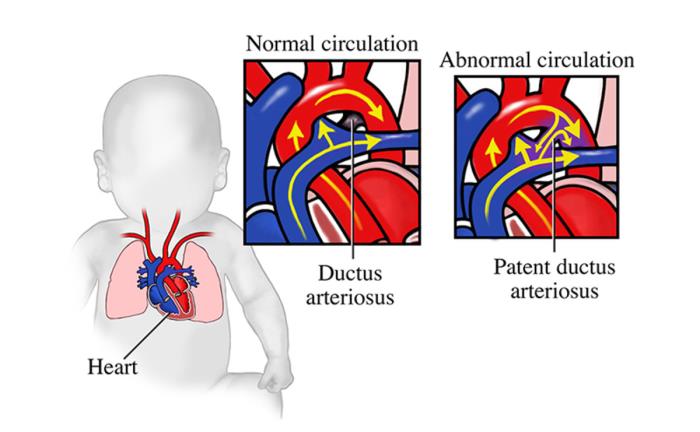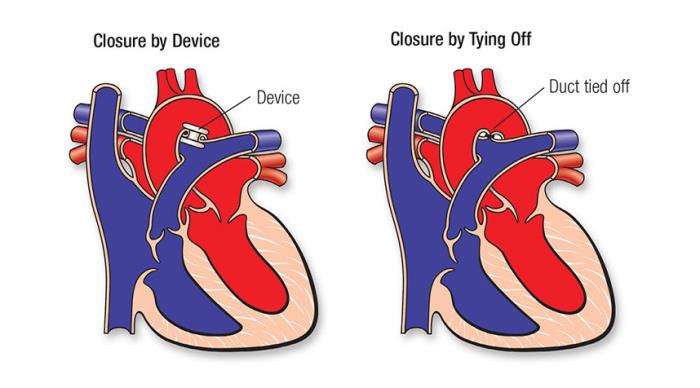Patent Ductus Arteriosus (PDA) is a congenital heart condition where a fetal blood vessel, the ductus arteriosus, fails to close after birth. This condition is more common in premature infants and can lead to increased blood flow to the lungs and strain on the heart if untreated. Understanding PDA is essential for ensuring timely diagnosis and treatment, which can prevent long-term complications and support healthy development in children.
Medical disclaimer: This content is for general awareness and does not replace a doctor’s consultation. For diagnosis or treatment decisions, consult a qualified specialist.
Why Early Detection of PDA is Crucial
Early detection of PDA allows for timely medical intervention, which is vital to avoid complications such as heart failure or pulmonary hypertension. Recognizing the condition early ensures that appropriate treatments, including medications or procedures like device closure, can be implemented before the heart and lungs face irreversible damage.
Common Symptoms of PDA in Children and Infants
Children with PDA may exhibit symptoms such as rapid breathing, frequent respiratory infections, difficulty feeding, or failure to gain weight. In severe cases, a distinct heart murmur may be present, along with signs of cyanosis or fatigue during physical activity. Recognizing these symptoms early is critical for prompt evaluation and care.

Diagnostic Methods for Early PDA Detection
PDA is commonly diagnosed using non-invasive imaging techniques such as echocardiography, which provides detailed information about the heart’s structure and blood flow. Additional tests, including chest X-rays and ECGs, may be used to assess the impact of PDA on the heart and lungs, ensuring an accurate diagnosis.
How Untreated PDA Impacts a Child’s Heart and Lungs
If left untreated, PDA can lead to overcirculation of blood to the lungs, causing pulmonary congestion and elevated pressure. This places an additional burden on the heart, potentially leading to heart enlargement, heart failure, or long-term respiratory issues. The severity of complications increases with delayed treatment.
Advantages of Timely Treatment for PDA
Timely treatment of PDA, whether through medication, catheter-based interventions, or surgery, restores normal blood flow and alleviates strain on the heart and lungs. Early intervention supports healthy growth and development, improves energy levels, and significantly reduces the risk of long-term complications associated with untreated PDA.
The Role of Pediatricians in Identifying PDA Early
Pediatricians play a vital role in identifying PDA through routine check-ups and recognizing symptoms such as heart murmurs or growth delays. Their expertise in monitoring developmental milestones and performing initial evaluations is crucial for early referral to a specialist, ensuring prompt and effective treatment.
Treatment Options for PDA: Medications, Devices, and Surgery
Treatment for PDA (Patent Ductus Arteriosus) varies based on the severity of the condition and the patient’s age. Medications such as NSAIDs can help close a PDA in premature infants by reducing prostaglandin levels. For larger or persistent PDAs, minimally invasive device closures using catheters are preferred. In rare cases where these methods are ineffective, surgical ligation is performed to physically close the ductus.
Improved Heart Function Through Early PDA Closure
Closing a PDA early prevents oxygen-rich and oxygen-poor blood from mixing, improving cardiac efficiency and reducing the heart's workload. This intervention supports normal oxygen delivery to tissues, enhancing overall cardiovascular function.
Prevention of Long-Term Lung Damage with Early Treatment
Early PDA treatment reduces the risk of pulmonary hypertension and chronic lung damage caused by increased blood flow to the lungs. Addressing the condition promptly preserves lung health and prevents irreversible complications.
Enhanced Growth and Development in Children After PDA Closure
Children with a closed PDA often experience improved growth and developmental milestones. Treating PDA allows the heart and lungs to function optimally, supporting better weight gain and cognitive development.

Reduced Risk of Infections and Other Complications
Untreated PDA can increase the risk of endocarditis (heart lining infection) and other complications. Early closure minimizes these risks, promoting a safer and healthier future for patients.
The Role of Parental Awareness in Early PDA Detection
Parental vigilance plays a crucial role in the early detection of PDA. Recognizing symptoms like difficulty feeding, poor weight gain, or rapid breathing can lead to timely medical evaluations and interventions.
How Advances in Pediatric Cardiology Improve PDA Outcomes
Modern advances in imaging and catheterization techniques have made PDA detection and treatment safer and more effective. These innovations allow for minimally invasive procedures with shorter recovery times and excellent outcomes.
Long-Term Health Benefits of Early PDA Intervention
Early PDA closure not only prevents immediate complications but also promotes long-term health benefits. It reduces the risk of heart and lung problems later in life, enabling children to lead active and healthy lives.
The Importance of Regular Check-Ups in High-Risk Infants
High-risk infants, especially those born prematurely, benefit from regular check-ups to monitor heart function and detect PDA early. Routine screenings ensure timely intervention and better health outcomes.
Case Studies: Success Stories of Early PDA Treatment
Numerous case studies highlight the transformative impact of early PDA intervention. Children treated promptly often achieve normal growth, avoid complications, and lead healthy lives, underscoring the importance of timely care.
Addressing Concerns About PDA Treatment in Young Children
Parents may worry about the risks associated with PDA treatment. However, minimally invasive options and advanced techniques have made treatments safer and highly effective, alleviating many concerns.
Best PDA Device Closure in India
The Best PDA Device Closure in India offers a minimally invasive solution to close the patent ductus arteriosus, helping prevent complications and improve heart function in affected patients.
Best PDA Device Closure Hospitals in India
The best pda device closure hospitals in india are equipped with advanced technology and expert pediatric cardiology teams, ensuring comprehensive care for successful outcomes.
PDA Device Closure Cost in India
The pda device closure cost in india is affordable, offering patients accessible pricing and high standards of care across specialized hospitals.
Best PDA Device Closure Surgeons in India
The Best PDA Device Closure Surgeons in India are experts in pediatric heart procedures, providing skilled and compassionate care tailored to each patient’s needs.
FAQ
How is PDA detected in infants and young children?
PDA is typically detected through clinical symptoms like a heart murmur, fast breathing, or poor weight gain, confirmed by echocardiography.
What are the most common signs of PDA in children?
Symptoms include rapid breathing, difficulty feeding, fatigue, and failure to thrive. In some cases, a heart murmur may be the only noticeable sign.
What happens if PDA is not treated early?
If untreated, PDA can lead to complications like pulmonary hypertension, heart failure, or endocarditis, with long-term effects on heart and lung function.
Are there risks associated with PDA treatment in children?
While any medical procedure carries risks, advancements in PDA treatment have minimized complications, making interventions generally safe and effective.
How does early treatment improve a child’s overall health?
Early treatment improves oxygenation, reduces strain on the heart and lungs, and supports normal growth and development, ensuring better long-term health outcomes.
Explore the Best Heart Care Resources in India
Find some of the top cardiologist, surgeons and the best heart hospitals in India
Best Heart Hospitals in India
Choosing the right hospital is crucial for successful heart treatments. If you want to explore trusted options, check the list of Best Heart Hospitals in India offering world-class facilities, advanced cardiac care units, and experienced teams for both simple and complex procedures.
Best Cardiologists in India
Finding the right cardiologist can make a huge difference in early diagnosis and long-term heart health. If you are looking for the Best Cardiologists in India, see this curated list of experts who specialize in preventive care, interventional cardiology, and complex heart disease management. Check the full list Best Cardiologists in India.
Best Cardiac Surgeons in India
If you are planning for heart surgery and need top-level expertise, we recommend exploring the Best Cardiac Surgeons in India. These surgeons have a proven record in performing bypass surgeries, valve replacements, and minimally invasive heart operations with excellent outcomes.
Get more indepth information on Cardiology treatments and their costs.
Conclusion
Your cardiology health deserve the best care. Explore the links above to learn more about the top cardiac hospitals and cardiac surgeons in India.
Pediatric cardiology plays a crucial role in the diagnosis, treatment, and long-term management of patent ductus arteriosus (PDA). Pediatric cardiologists use advanced imaging techniques, such as echocardiography, to diagnose PDA and assess its severity. Treatment options may include pharmacological interventions, catheter-based device closure, or surgical ligation. Pediatric cardiologists also monitor patients for potential complications, such as heart failure and pulmonary hypertension, and provide ongoing care to ensure optimal outcomes. The Role of Pediatric Cardiology in Managing Patent Ductus Arteriosus
Recovery time after patent ductus arteriosus (PDA) device closure, especially for catheter-based procedures like the Amplatzer Piccolo Occluder, is generally short. Patients often stay in the hospital for just 1 to 2 days, and full recovery typically takes around 1 to 2 weeks. During this period, following medical advice on activity levels, medication, and follow-up appointments is crucial to ensure a smooth and successful recovery process. Monitoring for any signs of complications and maintaining regular check-ups with healthcare providers is important to achieve optimal health outcomes post-surgery. Post-Surgery Recovery Time for Patent Ductus Arteriosus Device Closure
Patent Ductus Arteriosus (PDA) is a condition where a blood vessel called the ductus arteriosus fails to close after birth. Medications used to treat PDA, especially in premature babies, include nonsteroidal anti-inflammatory drugs (NSAIDs) like ibuprofen and indomethacin, which help close the ductus arteriosus by blocking certain body chemicals. In some cases, diuretics and vasodilators may also be used to manage symptoms and improve heart function. It's important to consult with a healthcare provider for a tailored treatment plan. Medications to Relieve Symptoms of Patent Ductus Arteriosus an Overview